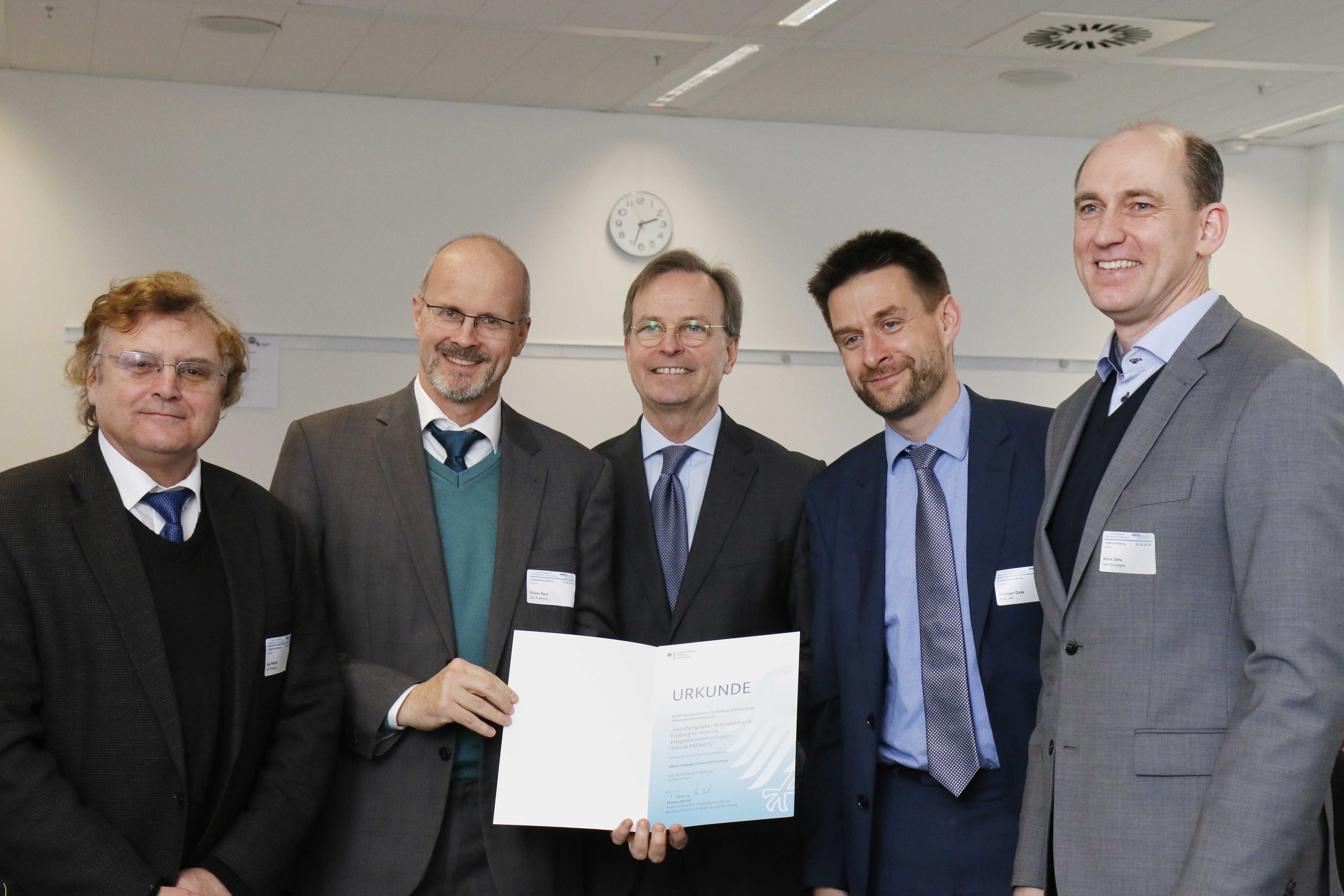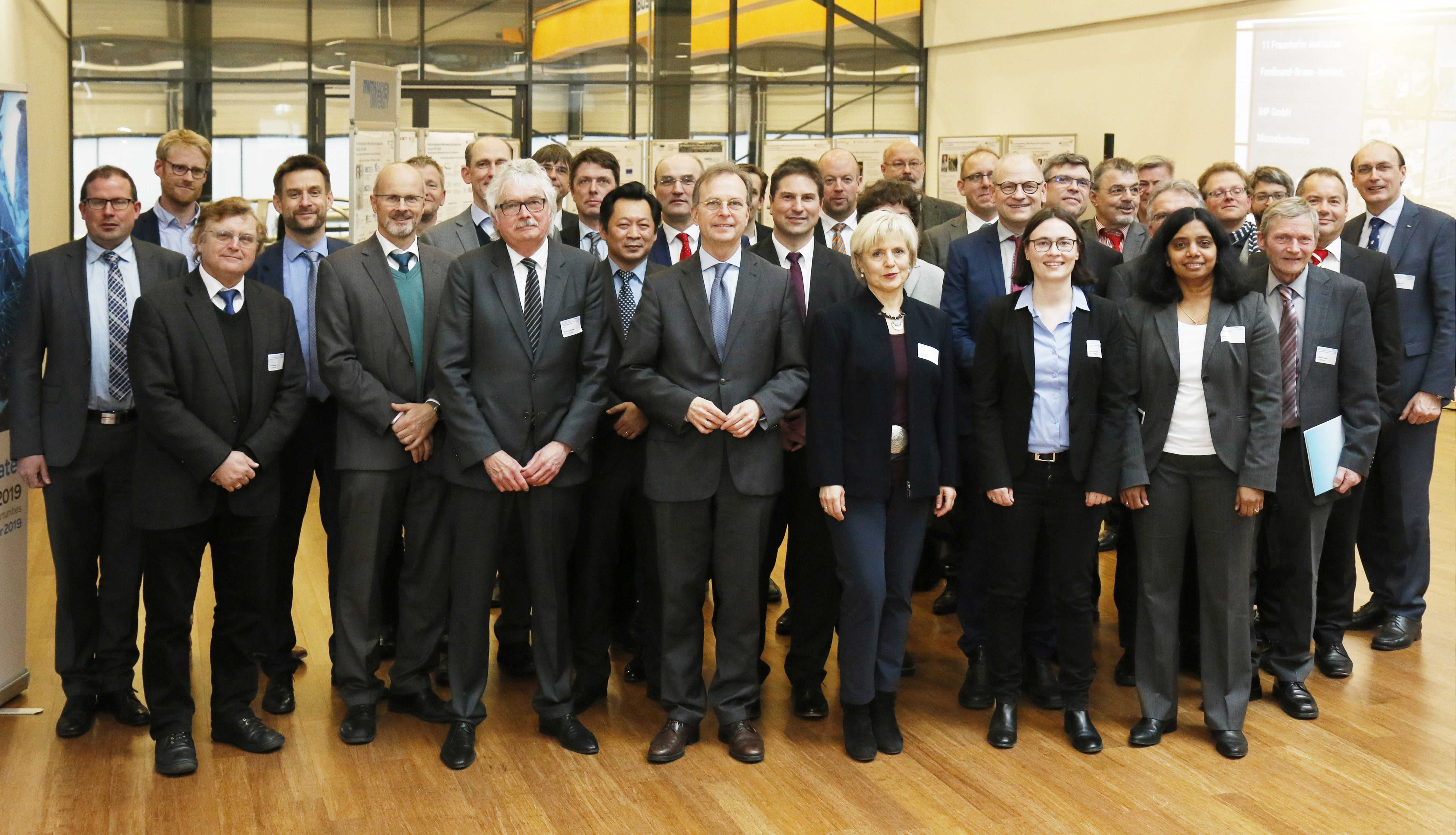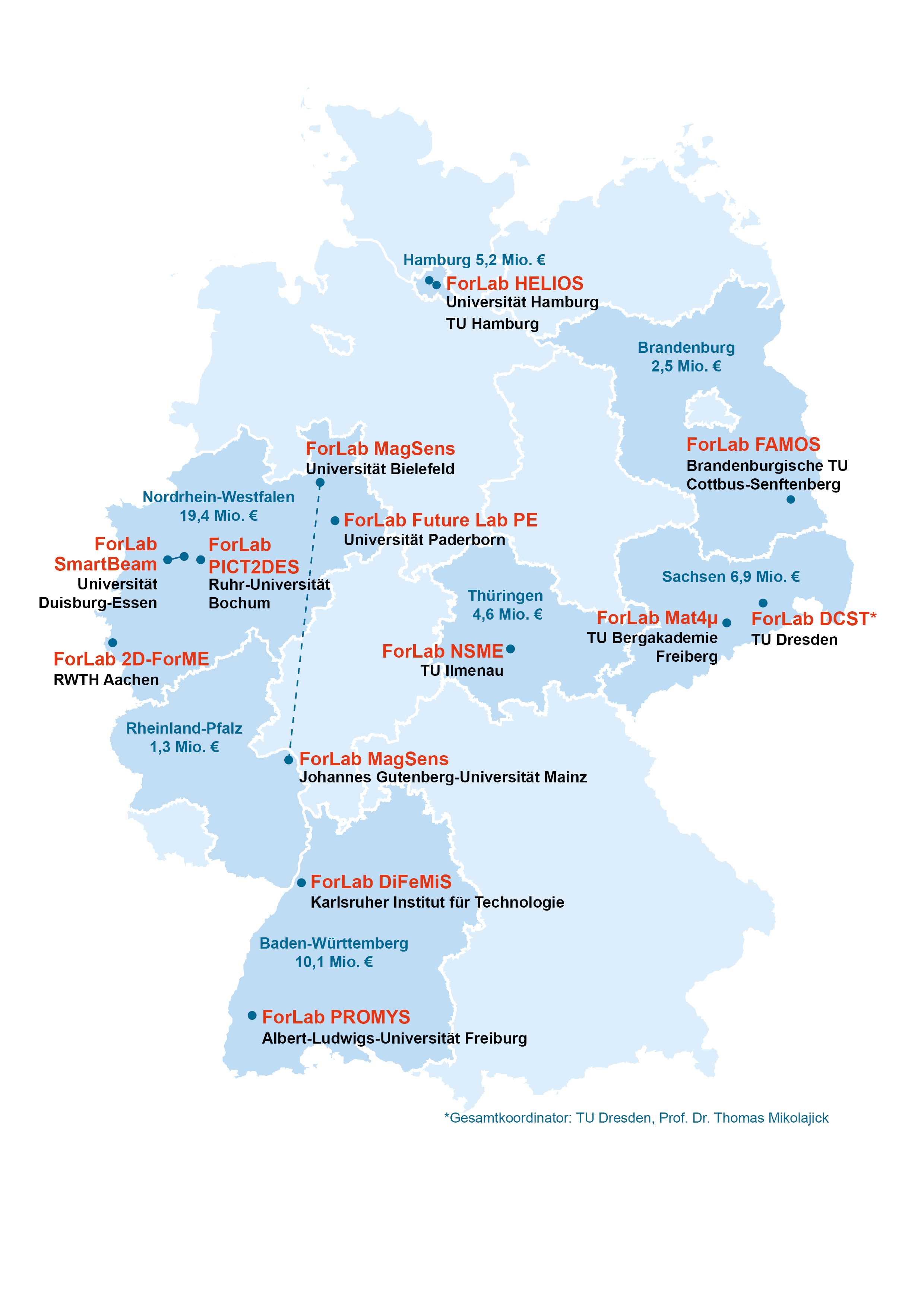Integrated microsystems play an increasingly important role in healthcare: They enable novel technologies for the continuous medical care of elderly, disabled or sick people in order to provide them with rapid help when needed. New, miniaturized microsystems offer the possibility of making sensors more efficient and more comfortable to use. To this end, the Institute for Microsystems Technology (IMTEK) and the Institute for Sustainable Systems Technology (INATECH) at the University of Freiburg are collaborating with the Fraunhofer Institute for Applied Solid State Physics IAF in the PROMYS project (»Processes and Materials for More-than-Moore Electronic Systems«). The project, which the German Ministry for Education and Research BMBF is funding with more than 6.7 million euros until 2021, aims to develop miniaturised sensors for biomedicine.
Smaller medical systems more comfortable for the patient
Today, medically applicable electronic systems already collect a large number of biological values via implants or so-called smart watches. New compact microelectronics not only make it possible to make these sensors more convenient and smaller, they also allow new forms of analysis to be carried out at home for which doctors were previously required. To achieve this goal, the researchers in the PROMYS project want to integrate components from different semiconductor technologies together with evaluation, communication and energy supply systems on a miniaturized chip. The focus here is on the strong miniaturization of the system, the use of new functional materials and a three-dimensional structure. The significantly smaller systems would be more resource-efficient and more comfortable for patients to wear. Cochlear implants for the deaf, for example, which still have to be attached to the patient's head in a large and bulky way, could become almost invisible.
Starting signal for PROMYS project
PROMYS is one of twelve projects in Germany funded by BMBF under the programme »Forschungslabore Mikroelektronik Deutschland« (»ForLab«; Research Laboratories Germany). With 6.7 million euros, Freiburg will receive the second largest amount of funding after Aachen. The ministry is providing a total of 50 million euros for investments in microelectronics research. On February 5, 2019, Thomas Rachel, Parliamentary State Secretary at BMBF and member of the German Bundestag, handed over the funding certificates to the research laboratories. At the kick-off event, he emphasized the important role of the universities for the future viability of the German innovation system: »Technological sovereignty in the age of digitization needs top equipment for top research not only in industry, but also in science. We want to create a living ecosystem in which new ideas and new knowledge can be quickly put to use and can be integrated into our everyday lives.
Prof. Dr. Thomas Mikolajick from the Technical University Dresden will be responsible for the overall coordination of the twelve projects. The Freiburg research laboratory PROMYS is coordinated by the University of Freiburg, Prof. Gerald Urban (IMTEK).
 Fraunhofer Institute for Applied Solid State Physics IAF
Fraunhofer Institute for Applied Solid State Physics IAF


